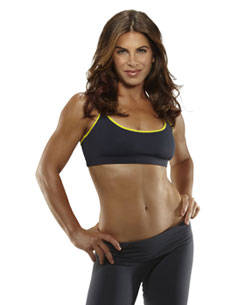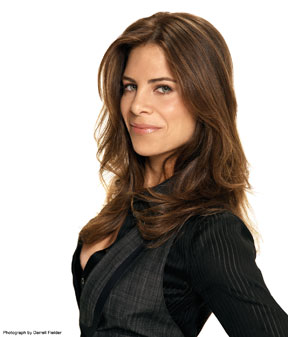ou know the routine: you drag your weary body from bed, turn on the computer, and spend eight hours writing a chapter in the next great American novel or research material for a Pulitzer-winning, non-fiction piece. Perhaps you spend eight hours at a full-time job, rush home, and squeeze in precious writing minutes wherever possible.
Stuffed into these long hours, you also must find time to complete household chores, raise the kids, cook for the family, fold laundry, carpool to soccer and music lessons, purchase groceries, maintain the lawn...
The one item missing from this crammed schedule is the single element of the writing life that many of us overlook: making a commitment to exercise. Too often, writers worry about exercising their mental prowess, fretting over word choice, character development, and setting. Instead, writers, especially those who perch in front of the computer screen for extended periods of time, could improve focus by getting out of the comfy office chair, working out, and maintaining a healthy diet.
As trainer and life coach on The Biggest Loser and Losing It with Jillian, health and wellness expert Jillian Michaels understands the importance of exercise for those immersed in the writing life.
“I LOVE to write,” says Michaels. She often sets Sunday aside to work exclusively on her current writing projects.
“When I am working on a book, I do it in long sessions. It takes me a bit to jump back into something and warm up, so thirty-minute sessions here and there aren’t productive for me.”
Michaels is a New York Times best-selling author of three books: The Master Your Metabolism Cookbook, Master Your Metabolism, and Making the Cut. She also penned Winning by Losing, The Master Your Metabolism Calorie Counter, and Optimiza tu Metabolismo, the Spanish-translated version of Master Your Metabolism.
“Exercise releases certain chemicals in the brain that fight depression, improve mood, and increase our attention span.”
Define the Connection
Being productive grows from understanding the mind-body connection.
Making sense of getting the idea onto paper becomes an intricate part of managing an exercise and nutrition plan. The physical link between brain and brawn joins neurons and skeletal muscles at a site known as a neuromuscular junction.
“Exercise releases certain chemicals in the brain that fight depression, improve mood, and increase our attention span,” adds Michaels. The exercise guru pinpoints studies involving school children and PE classes, as an example. “The kids who got PE had better focus and attention span than the kids who didn’t.”
The same principle can be applied to writers who don’t break away from the screen. Until movement occurs, the writing process may become sluggish: ideas jumble into a mishmash of incoherent characters or focus diverts to a new tangent. You gravitate from the office chair, mindlessly walking to the kitchen to grab a beverage and snack. Before you know it, you’re bottom line is bigger than a double-page spread.
What’s a writer to do?
“Variety is always best to keep the body from plateau.”
Pace Yourself
Call it the composition conundrum. Full-time writers depend on extended writing time to earn a living; but at some point in the day, exercise needs to become a priority, too.
Michaels suggests the ideal amount of exercise is sixty minutes, five days a week. But she’s also realistic about the time factor. “Your most realistic bet is to do thirty minutes, five times a week.”
Michaels says when exercising for shorter periods of time, a high intensity workout lets you burn as many calories as you can while making the most of exercise time. “Try high intensity interval training and circuit training all at roughly 85 percent of your metabolic heart rate (MHR).”
Switching up an exercise routine forces the body to adapt to new stimulus. Michaels suggests building a repertoire of exercise routines, including circuit training, interval training, cardio, power walking, and yoga. “Variety is always best to keep the body from plateau,” offers Michaels.

“...a trainer provides accountability, personal connection, and direct feedback on form and performance.”
Pump It Up
A writer doesn’t need a home gym filled with the latest and greatest piece of exercise equipment; however, Michaels asserts a treadmill or incline trainer that functions as a treadmill may be a writer’s best choice. Nearly any muscle can be worked using body weight training, and no equipment is necessary. But cardio becomes difficult for a variety of reasons, including weather conditions and home or family obligations. “A solid quality piece of cardio equipment can be a godsend.”
With the increase of work-from-home writers, gym membership may not be an option. Do exercise DVDs provide a challenge, or should a writer get to the nearest gym?
Michaels couldn’t offer any negatives about choosing between a gym and DVD workout. With a DVD, a trainer tells you what to do, so you get results. But she quickly points out the difference between sweating to the oldies to rip your hip-hop abs versus working out with a trainer. “A DVD is much cheaper, but a trainer provides accountability, personal connection, and direct feedback on form and performance.”

“I do a tremendous amount of writing, and there is no way I could focus and also try to do something like isometric breathing to work my abs. Even if I could, the calorie burn would be so minimal it would be nearly irrelevant.”
Break Up = Adds Up
Taking a break from writing for even a few minutes can help you feel better and increase energy. Simply stand whenever possible. This opens the hips and aids with energy flow. Take the stairs, if possible. March in place to increase circulation. All three options add a small dose of cardio to an otherwise sedentary day.
Joints ache? Muscles sluggish? Try a few strengthening exercises. Chairlifts build up arms and shoulders. Knee lifts focus on leg strength. Stretching the back and shoulder area by pressing shoulder blades together reinforces back muscles. Flexibility can be increased by trying a variety of moves. Seated side bends, body twists, or wrist and arm circles boost flexibility.
Michaels cautions about counting on these types of exercise as a weight maintenance measure. “I do a tremendous amount of writing, and there is no way I could focus and also try to do something like isometric breathing to work my abs. Even if I could, the calorie burn would be so minimal it would be nearly irrelevant.”
The trainer does stress proper posture during chair time. Sit up tall, keep your head directly over your spine, and engage the core. You’ll be surprised at how sitting up straight increases energy!
Writers afflicted with neck strain need to activate the muscles in the back of the neck while stretching the muscles in the front.
Michaels offers both an exercise and a stretch to alleviate the pain.
- Exercise: Try pulling your chin back towards the base of your skull as though you’re trying to give yourself a double chin. Hold this position for twenty seconds and then release. Repeat three times. This will help pull your head back over your spine.
- Stretch: Take your right hand and grab the left side of your head. Gently pull your right ear towards your right shoulder and hold for twenty seconds. Repeat on the other side. Do this for three reps on each side.
“Twinkies and Cheetos are perfect examples of what not to eat. Ever.”
Maximize Nutrition
What happens if you simply can’t find the time to exercise? Michaels believes if you are unable to complete the thirty-minute/five-per-week routine, the best bet is to focus on diet—using a clean, whole, balanced approach. In The Master Your Metabolism Cookbook, Michaels explains how metabolism is about biochemistry and how food choices affect a person’s biochemistry. For instance, an individual plagued with a thyroid issue needs to understand that those issues are created by xeno estrogens in foods and the plastics they’re stored in.
“Remove those foods and restore with foods that boost thyroid function, and your body will function optimally.”
Being mindful of caloric intake is just the beginning to establishing a sensible food plan. Michaels encourages people to search online for “metabolic rate calculator” and enter age, height, and weight information for their AMR (Active Metabolic Rate).
The calculator lists the number of calories a person should consume each day based on activity level. Avoid eating extra calories, unless it’s a special occasion, and then only in moderation.
Michaels also emphasizes food quality when building a meal plan. Go organic whenever possible. Eat real food. “If it doesn’t have a mother or come from the ground, avoid it. Twinkies and Cheetos are perfect examples of what not to eat. Ever.”
Healthy snack options don’t need to be limited to sliced veggies or fresh fruit. Michaels recommends Pop Chips, a one hundred-calorie option that have no dangerous or toxic ingredients, or So Delicious coconut ice cream bars, which have less than two hundred calories. Michaels reports it’s a satisfying treat for a sweet tooth.
Many writers grab a soda or cup of java to perk them up, especially early morning or mid-afternoon when the drowsies settle in. Avoiding soda and processed fruit juices remains an important rule for writers to follow. Water, organic coffee—in moderation—and tea are fine.
While some experts tout the eight-glasses-of-water-a-day mantra, Michaels says there isn’t a clear-cut rule for hydration. Instead, she recommends drinking enough water until urine resembles the color of lemonade. “If it looks like apple juice, you’re dehydrated and need more water. Gross answer, I know, but it’s the truth.”

“The only difference between the ones who make their dreams a reality and the ones who don’t is that the people who do know this fact have the skills to achieve their goals.”
Establish Reps
While a writer assembles an exercise and diet plan that works best for her situation, Michaels reminds that control is an important element for success. “On The Biggest Loser, I’m not really teaching people to lose weight. I can do that in one sentence: ‘Eat less, move more.’”
In her new book, Unlimited: How to Build An Exceptional Life (due out April 2011), she discusses the “how” of self-help—especially how to break free of baggage to create and claim the life we deserve in all areas, including health, love, happiness, and financial stability.
Michaels says everyone has unlimited potential. “The only difference between the ones who make their dreams a reality and the ones who don’t is that the people who do know this fact have the skills to achieve their goals.”
Taking control by setting up an exercise routine within the parameters of a writing schedule or taking that first step toward maintaining a healthy lifestyle will build a sense of confidence. And that self-assurance will spill over into writing projects.
Michaels agrees. “When we feel strong physically, we feel strong in every facet of our lives. Your health is the platform that your whole life is built on; and when that is solid, all other areas of your life will flourish.”
***

LuAnn Schindler is a full-time freelance journalist living on the eastern slope of the Nebraska Sandhills on a dairy farm with 200+ Holsteins. She currently blogs for The Muffin, the WOW! Women On Writing daily blog, and is a columnist for Premium-Green. Her work has appeared in the Pregnancy, 2: The Couples Magazine, Denver Post, Rural Electric Nebraskan, Absolute Write, in addition to other publications. LuAnn is a member of the International Food, Wine, and Travel Writers Association. She won a 2010 Nebraska Press Award for feature writing.
-----
Enjoyed this article? Check out these related articles on WOW!:
Just Chillin' with Kate Hanley, author of The Anywhere, Anytime Chill Guide: 77 Simple Strategies for Serenity
Interview with Jennette Fulda, Author of Half-Assed: A Weight-Loss Memoir
Interview with Kris Carr, Author of Crazy Sexy Cancer Tips
Interview with Gretchen Rubin, Author of The Happiness Project